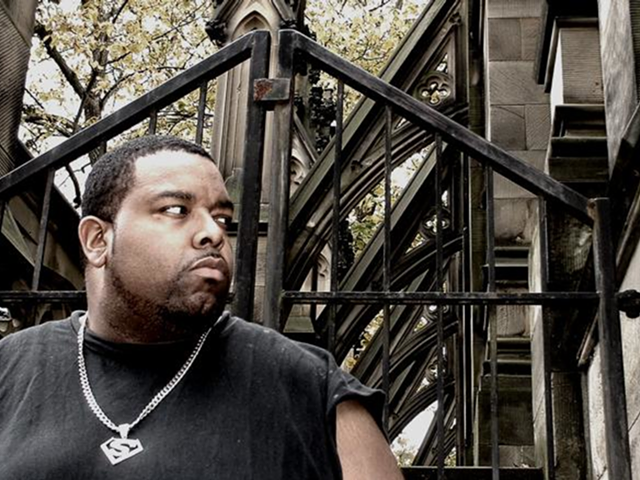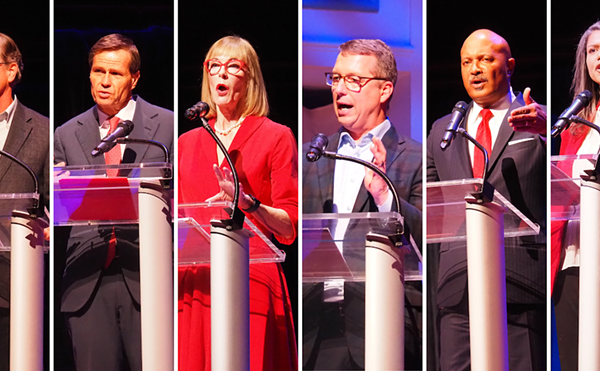Fussing over the latest translations of the Roman Catholic Mass recalls one of the truly weird moments in my years as a religion reporter.
It was more than 40 years ago when the New Order of the English-language Mass replaced the seemingly eternal Latin Tridentine Mass.
Traditionalists hated the changes. In addition to some clumsy translations from Latin to English, they said the “new” Mass was unfaithful because the 1570 Council of Trent fixed the Mass of Pope St. Pius V forever.
No surprise. With all of the changes ordered or initiated by the Second Vatican Council of the 1960s, a lot of Catholics were upset. Others welcomed the ways that Vatican II shook off Counter-Reformation rigidities.
In parishes and in the news media, differences sometimes deteriorated into name calling: “Liberal” Catholics who embraced the changes of Vatican II and “conservatives” or “traditionalists” who did not. There even was a mini-schism led by a maverick French archbishop, Marcel Lefebvre.
Meanwhile, publishers prepared new Missals for the Mass. Composers and music publishers — including influential musicians in Cincinnati — prepared new music. The Latin Tridentine Mass was not banned but its use was allowed only in special circumstances by local bishops. (There also were other languages used in Masses in Cincinnati, especially at Old St. Mary in Over-the-Rhine, but those, too, were new translations and the New Order of the Mass.)
As all of the changes came together, my lead story for a Saturday religion page described what finally would take effect the next day. The photo showed a sister holding bread baked at her Clifton convent to be used for communion instead of traditional wafer-like hosts.
About 6 a.m. that Saturday, a caller who’d just read The Enquirer religion page, accused me of writing “terrible things” about his church. He identified himself and in a voice that screamed anxiety and barely restrained anger, went over every change about which I’d written.
Among other things, my caller asked what would prevent the sisters from poisoning the (communion) bread. He told me he had a “very attractive wife” and he didn’t want men “lining up to put their mouths on her” (kiss of peace).
I’m not kidding. He thought I was inventing these “terrible things.” He knew where I lived because we have a White Pages listing. He didn’t believe that Vatican II changed the Mass.
He began to calm down when I assured him Cincinnati Archbishop Paul Leibold would explain all of this. I told him that Leibold cooked his own breakfasts, tended his own roses and liked a morning walk. In return for his promise to call at some decent hour, I gave him Leibold’s phone number. Then and now, this caller scared me in a way no other has.
Later, at a decent hour, Leibold called. Yes, archbishop, that man called me and yes, I hoped you might be able to help him, so I gave him your number. Leibold was forgiving. He agreed that I had not misread my caller's fear and anger. He was so offended by Vatican II that he’d quit going to Mass years earlier and missed the gradual embrace of changes. Everything I’d written was a surprise and shock. Leibold hoped he’d explained the changes well enough to get me off the hook and to bring the caller and wife back to church.
Curmudgeon notes:
• Blogger Bill Sloat reports that Leslie Ghiz’s husband was charged with DUI last month, a story the mainstream news media missed or ignored. His Daily Bellwether blog reports that city lawyers want a special prosecutor because Ghiz still was on Cincinnati City Council when her husband, Stephen G. Aziz, crashed his British SUV the night before Thanksgiving. Typically, Cincinnati DUI arrests are booked into the Justice Center downtown and the Records Division puts out an arrest report for the news media on a clip board in Room 101. If The Enquirer staff is so short-handed it doesn’t make those long-routine checks or no one thought it worthwhile to tell reporters covering police, city hall and council, then the impoverishment of our local reporting is stunning. TV fared no better. Now the failure to cover Aziz’s arrest and the city request for a special prosecutor are news.
• Business Courier’s Jon Newberry reports that as many as 250 jobs could be lost next year if The Enquirer closes its Queensgate printing plant and transfers printing to The Columbus Dispatch. There is a catch: If Dispatch unions don’t agree to give-backs, The Dispatch might emulate The Enquirer and fire them. Then The Dayton Daily News would print The Dispatch and The Enquirer, employees of the papers told Newberry.
• Read Cliff Peale’s polemic-free overview of potential Medicare changes in Sunday’s Enquirer Forum section. One of Peale’s strength’s is his reporting on health-care as a business, which it is, first and foremost.
• So The Enquirer wants to be liked. That appears to be the gist of new print and TV ads. A reporter speaking in one of the ads is Laura Baverman. She told Poynter’s Jeff Sonderman, in part, that the paper’s new editor “is telling us we need to . . . get out there and talk to people and be in the community letting people know that we care.” Note to Baverman and other newsroom survivors: When we didn’t have email, texting, Google, Twitter, Facebook, etc., we left the office and listened. People knew us from more than thumbnail mug shots in the paper.
• Gov. John Kasich doesn’t read Ohio newspapers. The American Independent.com quoted him as telling a Columbus college audience, “I don’t read newspapers in the state of Ohio. Very rarely do I read a newspaper . . . Reading newspapers does not give you an uplifting experience . . . I have found that my life’s a lot better if I don’t get aggravated by what I read in the newspaper,” Kasich said, noting that others occasionally send him important articles and “things I need to know about.”
• This from jimromenesko.com: “fuck” appeared in the Greenville, S.C., News. Big fucking deal. It stood alone as a paragraph in an AP sports story. I don’t think it was in the original AP story. Whoever did it at the Greenville News probably wasn’t a copy editor: Fuck wasn’t capitalized. Even the f-word is capitalized when it starts a paragraph. The culprit also left out the period at the end of the one word paragraph. Another reason to exonerate copy editors. As my teletype operator in London used to say, “in-fucking-credible.”
• Michele Bachmann rivals Sarah Palin in her certainty about statements that have no basis in fact. Bachmann often comes across as ignorant and harmless. Her latest misstatement is, so far, truly damaging. I’ll let The New York Times’ Denise Grady explain:
During a debate for Republican presidential candidates and in interviews after it, “Bachmann said the (HPV) vaccine to prevent cervical cancer ‘dangerous.’ Medical experts fired back quickly. Her statements were false, they said, emphasizing that the vaccine is safe and can save lives. Mrs. Bachmann was soon on the defensive, acknowledging that she was not a doctor or a scientist. But the harm to public health may have already been done. When politicians or celebrities raise alarms about vaccines, even false alarms, vaccination rates drop.”
Bachmann’s full quote on NBC's Today Show about the HPV vaccine, "It can have very dangerous side-effects." Bachmann is in know-nothing company in her certitude: Among them are model Jenny McCarthy, who assures parents that the measles-mumps-rubella (MMR) vaccination could cause autism, and Andrew Wakefield who ignited the pandemic of fear and rejection of the MMR vaccination. McCarthy claims no expertise beyond certainty: she uses assertion as evidence. Wakefield is more dangerous. He was a physician in good standing when he presented his fraudulent findings to credulous readers in the medical journal Lancet. Critics’ evidence forced Lancet to withdraw the article. Wakefield moved to our country after Brits withdrew his medical credentials.
• Before quoting politicians and celebrities on science, medicine, astrophysics, geology, climate, etc., why don’t reporters ask where the politicians expertise comes from? At least an admission like Bachmann’s — that’s she’s no doctor or scientist — should accompany such assertions if they don’t consign them to the spike. Pursuit of fairness and the public’s need to know do not require us to report nonsense or worse. No prudent news medium that would publish a formula for a suicide cocktail or fuel oil/fertilizer bomb like that used in Oklahoma City. So why publish even deadlier celebrity/politician statements attacks on demonstrably valuable medical care?
• The Manchester Union Leader, largest daily in a tiny state, endorsed Newt for the GOP presidential nomination. Big deal. On the other hand, it was almost the only event that didn’t involve sex or scientific ignorance in the GOP presodential campaigns that day.
• Brits never let me down when I need a giggle. A TV presenter ranted on-air that striking public employees should executed in front of their families for daring to complain about possible changes to pay, benefits and pensions. More than one columnist noted that the presenter, Top Gear's Jeremy Clarkson, also is richly paid from public funds. BBC says it received more than 21,000 complaints about Clarkson’s comment.
Another BBC moment involved an open mic. This from London’s Telegraph: A computer glitch during a 7:50 a.m. regional bulletin on BBC Radio Scotland drove one employee to vent his frustrations inadvertently on-air.
It began with a sound bite of the presenter saying "The Borders” looping over and over 37 times followed by around a minute of silence.Three minutes into the 10-minute bulletin, a male sighed as he desperately tried to rectify the problem. He then says: "Oh bullshit."
The Telegraph said the Scot coughed and was heard clicking a mouse and tapping his keyboard repeatedly before he then groaned and said, "Give me...what the bloody hell is going on here? Shit. What the hell happened there?"
He started clicking again but said, "Well, fuck it. Great. That's all you want really, isn't it. Yup. And I don't have Glasgow. What the hell's going on? Technical fucking difficulties."
He sighed again and resigned himself to the problem saying: “Arrrgh, hell. Forget it. She was shouting 'The Borders . . . The Borders' all the time." The bulletin ended with around five minutes of dead air before normal programming resumed.
• Is it “anti-capitalist” to protest the disparities in American incomes or to blame the banks — whose admitted lack of due diligence — brought down the economy? Clearly, the Occupy Wall Street folks are less anti-capitalist than they are young people who want a fairer share of the system they grew up expecting to enhance with their brains and efforts. Yes, there are outliers in every group, but no one called the dishonest, manipulative and just plain dumb bankers “anti-capitalist” when they gorged at the taxpayer tit to survive after blowing up the global financial system. Scratch a protester and much of the time, you’ll find someone yearning to be a capitalist.
• London’s Daily Mail says BBC won’t offer the final segment of its Frozen Planet series in the United States because Americans are so hostile to the idea of climate change and global warming.
• My image of New York retailing rests on a New Yorker cartoon. A father stands in front of his store, arm on his young son’s shoulders. Behind them, the store windows are plastered with signs saying “Lost our Lease” and “Going out of business sale” or something like that. And the father is saying to his son, “Someday, all of this will be yours.” It’s a tough market there every day. Then I read The Times' business cover on Black Friday on how Black Friday isn’t the best day for many bargains. Various categories of retail goods — from electronics to stoves and clothing to toys — have their seasons. Most will be in the last six weeks of the year. Many will not be on Black Friday.
So why didn’t The Times publish this advice in time for Black Friday bargain shopping? My gut feeling tells me that people lusting for Black Friday goodies were out the door before The Times arrived on Friday and that people with the leisure to read it weren’t likely to be in the unseemly pre-dawn scrums at store doors. If they’d published that story on Wednesday before Black Friday, some shoppers might have waited for better deals but advertisers wouldn’t have liked that.
• Enquirer Editor Carolyn Washburn says that so many Enquirer readers are nasty that online comments will require a Facebook sign-in screen name. She expresses dismay over the language and tone of the anonymous comments. Anonymity and nasty have merged in many media. Why not Enquirer online comments? Listen to WLW (700 AM) talk radio. Hosts and callers regularly denigrate and demonize persons with whom they disagree. They didn’t invent this approach. It’s borrowed from local and national talk show hosts, whether radio or cable TV. Most is on the political right, granting neither intelligence nor integrity to others. Americans don’t debate in the media, we shout angrily at each other. Discussion is, like compromise, treason.
• Frank Cleveland, a former Hamilton County coroner, died last week. A pioneer in forensic pathology, he was involved in one of my favorite stories that never saw ink. As an Enquirer religion reporter, I loathed annual holy day stories: Christmas, Easter, Passover, Yom Kippur, etc.
One Easter season, I called Cleveland and asked for his professional judgment: How did Jesus die?
Were he there with his 20th Century medical knowledge, what would have been the cause(s) of death? After all, Jesus was relatively young and sturdy. Cleveland took me as seriously as I intended. Jesus didn’t bleed to death from any wounds, including nails piercing his limbs and thorns around his head, nor from being whipped or forced to haul his cross to the place of execution.
No, Jesus died of “positional asphyxiation,” Cleveland said, adding that he’d just had such a case. A crucifixion? No, an apparent burglar stuck between two buildings where he couldn’t move. As I recall, Cleveland said Jesus and the burglar grew so tired that their heads slumped forward and closed their windpipes.
That was to be my Good Friday story: How Jesus Died.
Deaf to my pleas that my story took Jesus’ death seriously, editors said, “No, do something else.” I probably revived the perennial cliche, “Christians worldwide today will commemorate . . . “
Editors did, however, want the story about the burglar who died, stuck between two buildings, when his head slumped forward and cut off his oxygen.
• It was a mini-flap that asked when a spouse’s community role create unacceptable conflicts of interest which compromise the reporter’s integrity? And, is it unacceptable to use a spouse’s contacts to gain an advantage over other journalists?
As reported by The New York Times’ Jeremy W. Peters,
“Greta Van Susteren, the Fox News host, faced questions . . . about whether she should have disclosed the friendship between her husband, a noted Washington lawyer (John Coale), and Herman Cain, whose wife, Gloria, granted Ms. Van Susteren an exclusive interview. The appearance was a huge coup for Fox News, coming shortly after Mr. Cain was accused of sexually harassing several women.”
Reporter Peters said Van Susteren would not say “whether she had ever disclosed to Fox executives her husband’s friendship with Mr. Cain. And she did not answer another question, posed to her in an e-mail from The New York Times, about whether anyone at Fox News had pressed her to mention the friendship on her 10 p.m. Fox News Channel program.
Some journalists in the news division of Fox, which has long felt that its reporting is unfairly associated with Fox’s right-leaning hosts like Sean Hannity, Bill O’Reilly and Ms. Van Susteren, were said to have voiced their concerns about yet another example of coziness between Republicans and the network. Mr. Coale called The Times to say that his friendship with Mr. Cain had no influence on Ms. Van Susteren. No money or strategic advice ever changed hands, he said, just dinner and informal talk. ‘I didn’t advise him,’ Mr. Coale said. ‘Why should Greta have to disclose every time I have dinner with one of my friends?’
And that’s the question that bedevils many of us. Where do we draw the line between a reporter’s interests and friendships? When do we tell our readers, viewers or listeners?






